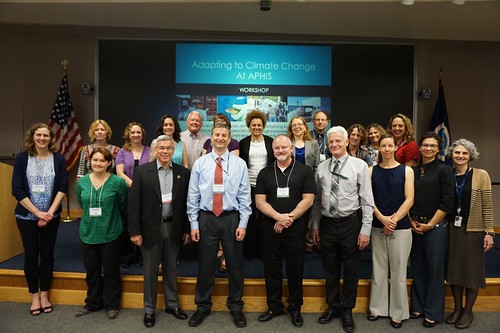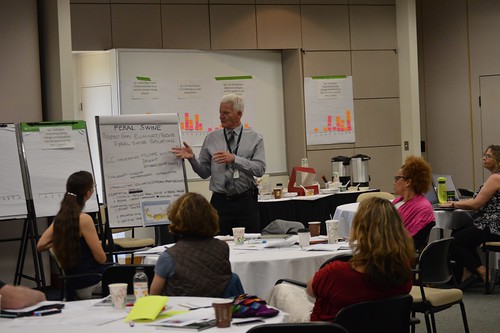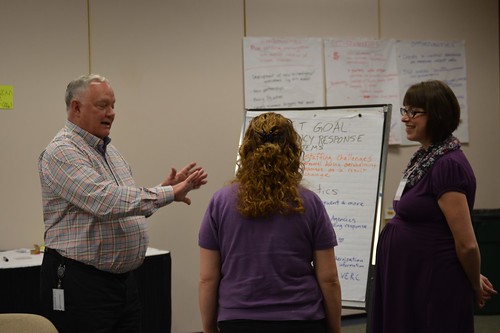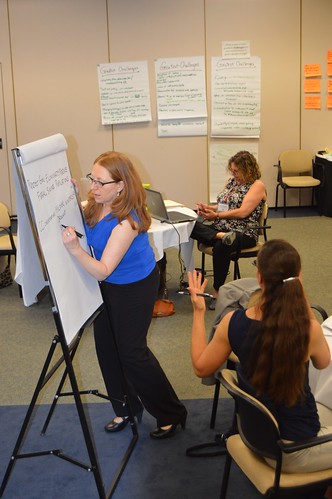
All this month we will be taking a look at what a changing climate means to Agriculture. The ten regional USDA Climate Hubs were established to synthesize and translate climate science and research into easily understood products and tools that land managers can use to make climate-informed decisions. The Hubs work at the regional level with an extensive network of trusted USDA agency partners, technical service providers, University collaborators, and private sector advisers to ensure they have the information they need to respond to producers that are dealing with the effects of a variable climate. USDA's Climate Hubs are part of our broad commitment to developing the next generation of climate solutions, so that our agricultural leaders have the modern technologies and tools they need to adapt and succeed in the face of a changing climate.
How important will climate change considerations be in your work in the next 3-5 years? That was one of the questions USDA employees were asked in mid-April at the start of a two-day workshop at the Animal and Plant Health Inspection Service (APHIS) in Riverdale, Maryland. The hands-on training session, facilitated by APHIS’ Climate Change Working Group, the Forest Service, Northern Forests Climate Hub and the Northern Institute of Applied Climate Science, was designed to help APHIS employees from various program and support units incorporate climate change considerations into their actual projects.
The workshop emphasizes a structured yet flexible adaptation approach developed by the Forest Service to integrate climate change considerations into project planning and activities. The five-step process includes 1) defining the area of interest, 2) assessing climate change impacts, 3) evaluating management objectives, 4) identifying and implementing adaptation tactics, and 5) monitoring and evaluating the effectiveness of the actions.

Workshop participants used this process to analyze how climate variability and uncertainty and shifting geography might affect APHIS’ mission in addressing the presence and movement of agricultural pests and diseases. For instance, would exotic animal and plant species—already proven to be adaptable to changing conditions—be better equipped than native species to survive climate change? How might storm surges aid in the spread of wood-borne pests? How might certain changes in climate in other countries affect shipping routes, import seasons, and other trade issues?
The workshop challenged participants to consider new approaches to adapting to climate change. A majority predicted they would apply the adaptation workbook process to another project in the next year. Nearly every respondent said they would share what they had learned with people inside and outside the agency.

As to the question about how likely climate change considerations would be in their work in the next 3-5 years? On a scale of 1-10, workshop participants, on average, rated that an 8.
Like the climate, the times, they are a-changing too.


